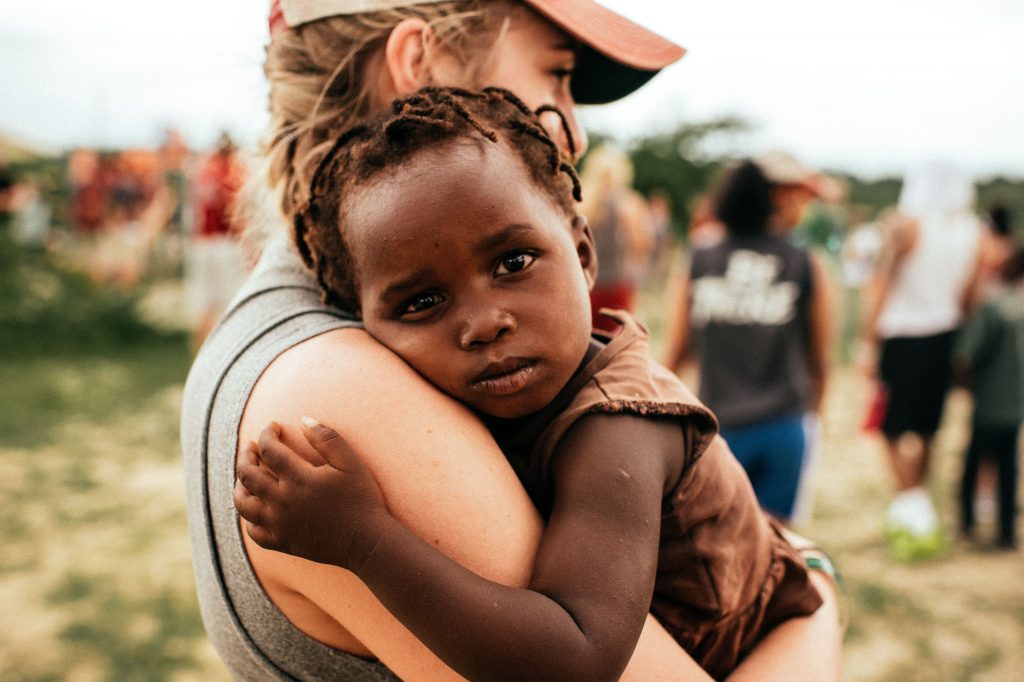One of our missionaries who has been stateside for the past six months dropped by to see us before she headed back to Nairobi. Kristen first served as a missionary journeyman with the International Mission Board, and then took the career route. While a journeyman she actually traveled to a number of countries related to her specific assignment. But during the process she landed in Nairobi where her heart broke for the thousands of unreached street boys. Upon returning as a career missionary with the IMB, she has had opportunity to invest her life in helping to reach this unreached people group that lives in poverty, drug addiction, and unimaginable conditions.
Stanley, one young fellow the age of my oldest granddaughter, was on the streets in this massive city as a nine-year old. Bright and articulate, with a smile that warms your heart, I kept shaking my head to imagine that less than a year before I met him Stanley lived a totally hopeless life, covered in dirt with multiple layers of clothes, and eating whatever scraps he could find. Then, by the grace of God, Kristen and her co-workers reached out to him. Taking him under their wing, they loved, nurtured, discipled him, and got him into school. When I met him, Stanley was at the top of his class in school and demonstrated abilities to pursue most any career. I had wonderful opportunity in the brief trip to Nairobi to speak into his life.
So, when Kristen gave me the report that he is now second in his class but has been skipping half of each day of school, I asked to send an exhortation. She whipped out her cellphone and recorded me urging him to see his schoolwork as a stewardship to the glory of God. How amazing, I thought, that thousands of miles away I could continue to speak into Stanley’s life!
We prayed for Kristen and bid her goodbye as she heads back. It made me pause to consider how our congregation might continue to minister to her and the others in our fellowship who serve as an extension of our church’s ministry in other places around the world. Here are a few things that our churches can do to help our missionary brothers and sisters in the year ahead.
First, we need to regularly pray for our missionaries. I know, I know, we’ve heard about praying for missionaries all of our lives. But let me insist, that’s the most important thing that we can do for them. They are doing spiritual work while engaged in spiritual conflicts with an enemy that seeks to steal, kill, and destroy. Only the power of God at work can change the Stanleys of the world. Our missionaries feel the weight of their weaknesses day after day: struggles with language, conflicts with culture, opposition by locals—sometimes more than just looks and words, getting along with their teammates, maintaining healthy marriage and family, and having a body to worship with are among the many things that need our prayers. Plead with the Lord on their behalf!
Second, we need to regularly communicate with our missionaries. You can guarantee that one of the first things that each does daily is to check his/her media devices to see if anyone from home has sent a note! With the various media available in most countries, we can be in ongoing contact with our missionaries. Obviously, some are in high-level security areas, so check with your pastoral staff to see about particular cautions to use. But do not let that stop you from making contact! Your missionaries love to know what’s going on in your lives, new things with your family, and even mundane things like a new recipe or new song that you’ve come across. They like to talk about the same kinds of things that everyone else talks about. It’s just that they are several thousand miles and a few time zones away. They also need people to listen to them express their struggles while knowing they will be accepted and loved. Don’t leave this kind of communication to just the pastoral staff. They need to hear from you. So crank out that email or send the text or connect with a Skype video call or Facetime call or message on Facebook. Even hand-written letters are greatly appreciated!
My wife and I were in a meeting with a missionary couple who has been on the field for twenty years. We were stunned when they said that they never heard from their home church. That further isolated this couple from those who should continue to nurture them in the faith. Make sure that does not happen with any who extend your church’s ministry to the ends of the earth.
Third, we need to look for tangible ways to serve our missionaries. Sometimes that is financial support (certainly one of the more obvious things we can do). Other times the missionaries need particular materials or products or resources in order to better serve the people whom they are trying to reach. Imagine living in a culture where hospitality is central to life, yet not having the kind of tools and items that we find helpful to show hospitality. The local church at home can provide those things.
Fourth, visit your missionary families in their mission setting. Let that be a priority in your church budget. As much as missionaries like hearing from you, they really would love to see you face-to-face. They want to show you their city, introduce you to their friends, and let you sample their new culture. You don’t have to do anything special. Just spend time loving on them, reading the Word with them, praying for them, playing with their kids, and meeting their needs on such visits.
Make serving your missionaries a priority in 2015! In that way, you participate together with them in the work of the gospel just as the Philippian church participated with Paul in his work (Philippians 1:7).




















